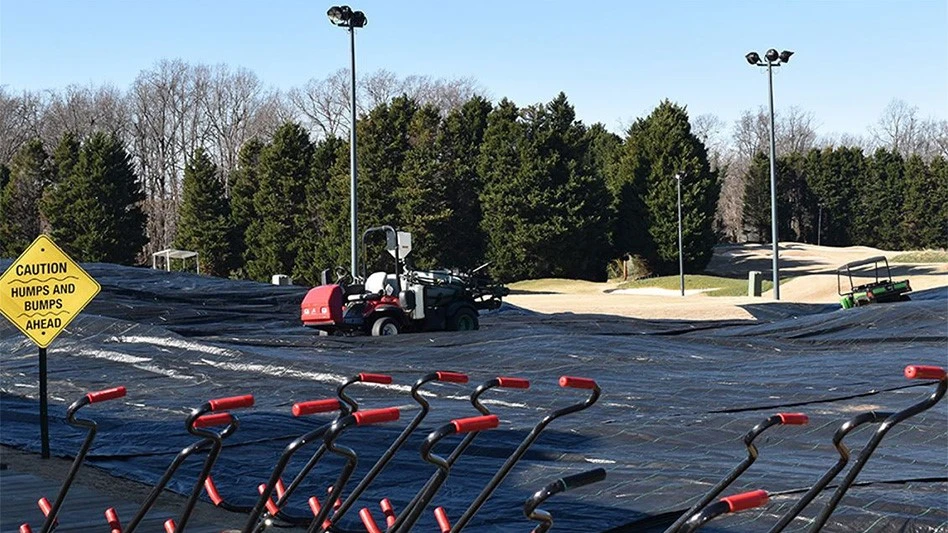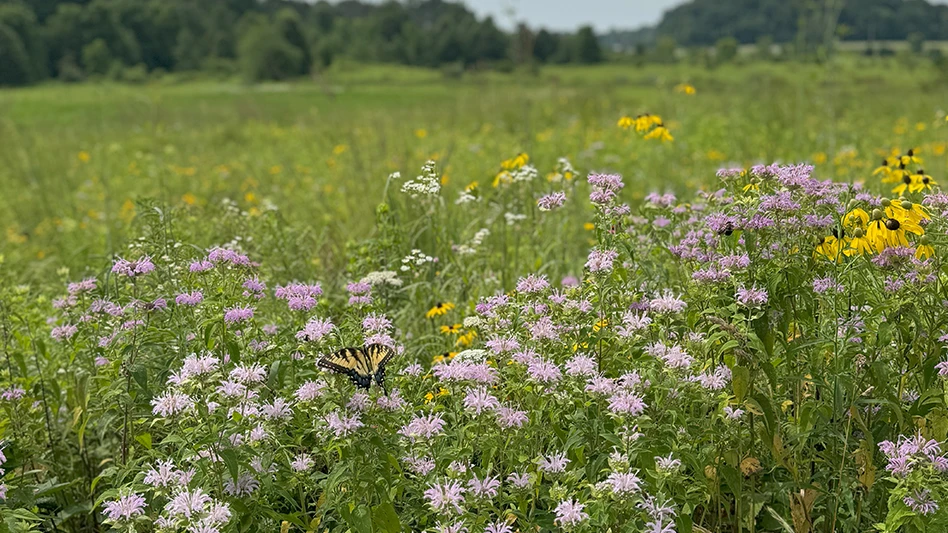
Like everyone else, golf course superintendents across much of the Carolinas have been busy with Christmas wrapping. To protect turf against the bitter cold snap, superintendents with the resources have been pinning heavy-duty covers over dormant Bermudagrass greens. Those without covers face the prospect of an insidious threat known as winterkill.
“This is nightmare central,” says Tim Kreger, executive director of the 1,800-member Carolinas GCSA. “Many areas are looking at at least four consecutive nights where the temperature is in the teens. Strong winds intensify the cold and the threat, so what we have now is bad news for a warm-season turf like Bermudagrass, which is the predominant turf on courses in our region.”
Winterkill occurs when sustained severe cold, low humidity and strong winds combine to freeze-dry plant cells, making the plant brittle and vulnerable to crushing like a potato chip. Even without any impact from above, the plants can still starve to death because frozen cells serve as a roadblock to the passage of essential nutrients. Generally, the damage doesn’t reveal itself until spring, just when golfers are looking to get busy again.
Even on covered greens, the intense cold drains dormant plants of carbohydrate reserves that help feed their resurgence in the spring. The more periods of intense cold during winter, the greater the strain on those reserves and the less able turf is to rebound when temperatures rise. In worst-case scenarios, the plant dies, requiring expensive replanting or sodding.
And covers themselves are only one part of the puzzle. First, superintendents must ensure there is adequate moisture — 75 percent or more — in the soil to avoid desiccation. They will then apply a surfactant or wetting agent that makes it easier for the soil to absorb that moisture. That process must begin two or three days before covering.
“If not, and you’re just rolling out your covers, you’re also rolling the dice. I’ve seen people skip those steps and sustain real damage,” says Dick Schulz of S&S Turf Covers. A former superintendent and golf course owner, Schulz describes the intensity and timing of this cold period as “generational.” “You just don’t see it get this cold for this long this early in winter.”
Underscoring his point, Schulz says he received “50 or 60” orders for more cover stakes just this week, as superintendents readied for high winds.
“It’s horrible right now,” says Roger Olmstead, superintendent at Reedy Creek Golf Course in Four Oaks, North Carolina, where winds gusts of up to 50 mph forced him to park golf carts on top of his covers to help keep them in place. “The wind was just ripping the stakes right out of the ground. I’m just praying the carts will be enough to hold the covers in place. I’ve got carts on the corner of every cover on every hole.”
For superintendents without covers, some, in the right circumstances, might actually run irrigation to create a layer of ice over the green to create an insulating barrier. “That’s not as easy as it sounds to get it right,” Schulz says. “You need the perfect conditions to make it work effectively.”
The longer the cold continues and the more intense cold that follows increases the likelihood of significant damage to other areas of the course, like tees, fairways and roughs. The most recent winterkill event in the Carolinas came in 2018, affecting courses across the region, including Myrtle Beach, South Carolina, where nearly a dozen courses were forced to close to carry out repairs.
“The key right now is for course owners and golfers to trust the professionals they hired to take care of the golf course and let them do their job,” Schulz says. “Mother Nature is always going to have the final say but listen to your superintendent because they know the science that will give you the best chance of getting through this.”
Latest from Golf Course Industry
- Graze, Invited partner for autonomous mowing launch at Gleneagles CC
- New grasses up north?
- From the publisher’s pen: Technology diffusion and turf
- Applications open for 2025 Syngenta Business Institute
- Smart Greens Episode 1: Welcome to the digital agronomy era
- PBI-Gordon promotes Jeff Marvin
- USGA investing $1 million into Western Pennsylvania public golf
- KemperSports taps new strategy EVP





